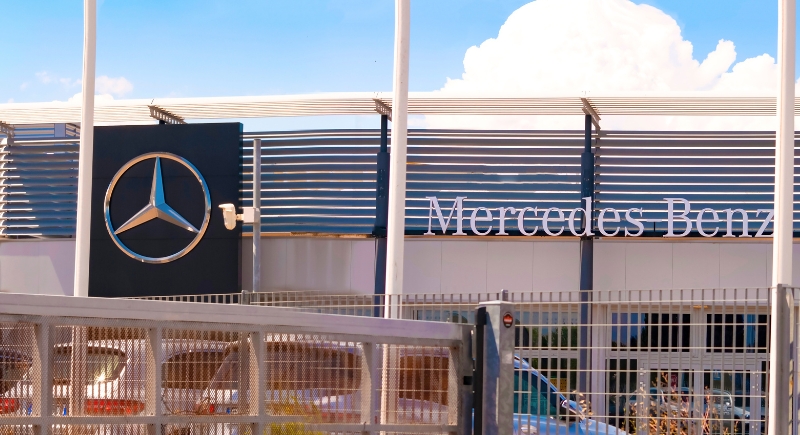It’s not often you hear a company offering people hundreds of thousands in payments to walk away. Mercedes-Benz is reportedly offering up to half a million euros to some employees who choose to resign voluntarily. It’s a move that could save them billions over the next few years.
The program has already made waves inside and outside Germany, partly because of how generous it is and partly because of what it signals about the shifting priorities of one of the world’s most iconic carmakers. As the company leans harder into electric mobility, digital systems, and a leaner business model, it’s also finding new ways to address an old problem: how to cut costs without upending people’s livelihoods.
The Five-Billion-Euro Plan

Image via iStockphoto/Marina113
Mercedes-Benz aims to save about €5 billion by 2027. The initiative, called Next Level Performance, is designed to make operations more efficient while adjusting the workforce for the electric age. It focuses on trimming administrative layers and aligning costs with slower sales in some key markets, including China.
Around 30,000 to 40,000 administrative employees in Germany are covered under job security agreements that block layoffs until 2034. Since dismissals are ruled out, management needed a more gentle approach to reducing staff numbers. This incentive plan does just that, and so far, it has been paying off.
Reports show roughly 4,000 workers have already accepted the offer, some walking away with as much as €540,000 ($580,000). The buyout program began in April 2024 and will continue through March 2026; that’s nearly two years to make a decision. Those who act fast receive what’s called a “turbo bonus,” a small boost for quick decision-making.
Engineers, IT professionals, office staff, and mid-level managers are all eligible for this program. Payouts depend on factors such as age, seniority, position, and base pay. A 55-year-old team leader with three decades at Mercedes, earning about €9,000 monthly, could walk away with half a million euros. Someone with 20 years of service might receive closer to €300,000, while a younger staff member could collect about €100,000.
Executives still reserve the right to decline applications if someone holds a key role that would be difficult to replace. Even so, most voluntary exits are being approved.
Why Mercedes Is Doing This Now
Global carmakers are in the middle of a dramatic shift toward electric vehicles, and that change isn’t cheap. Battery materials are expensive, production methods are different, and traditional engine sales are tapering off. On top of that, Mercedes has seen a 12 percent dip in quarterly sales, largely due to a slowdown in China, a market that once guaranteed steady profits.
To stay ahead, the company is pouring resources into electric and digital development. In 2024, it opened a new EV plant in Sebes, Romania, after investing more than €100 million. These expenses demand savings elsewhere, so workforce reduction is a logical step.
The strategy lets Mercedes reshape itself without the backlash or disruption that often comes with layoffs. CEO Ola Källenius has framed the initiative as a way to modernize while giving employees fair choices. Those who stay will be part of a more agile and future-focused operation.